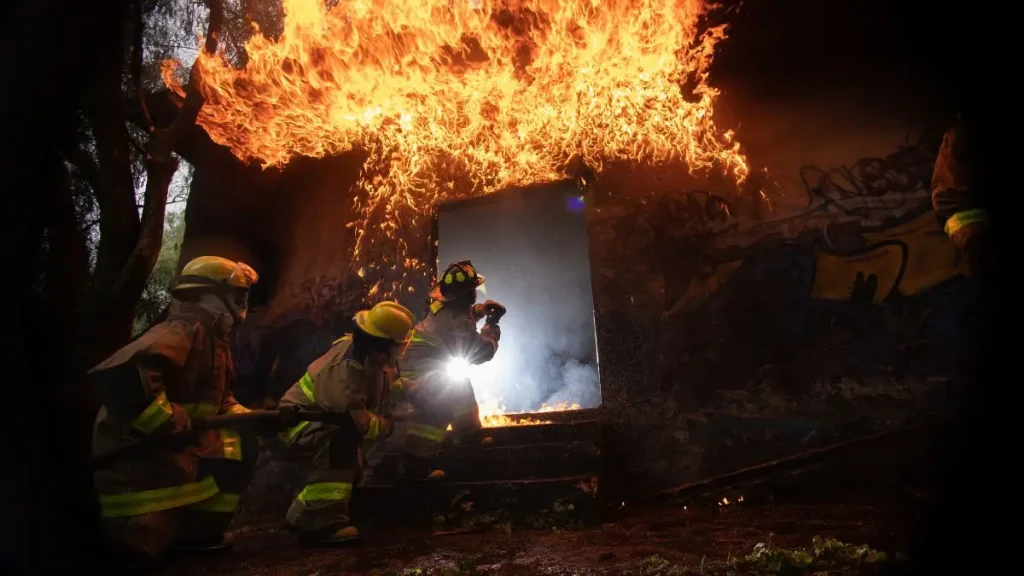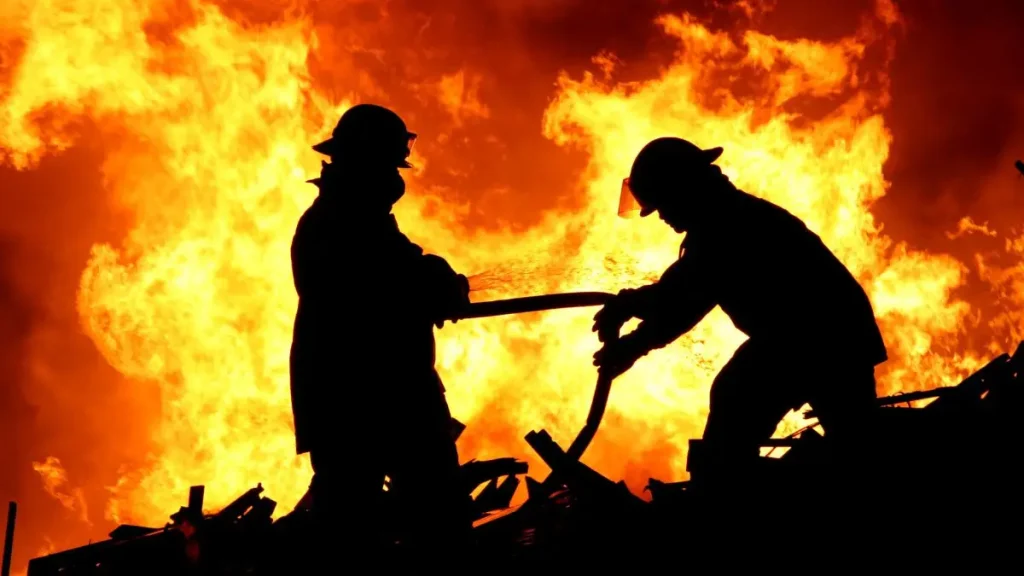Utah Home Fire Leaves Woman With Severe Burns
I want you to picture this — it’s a quiet Sunday afternoon in Sandy, Utah. Around 3 p.m., a sudden blaze erupts at a home near 1800 East. Within minutes, smoke is pouring out, neighbors are calling 911, and firefighters are racing to the scene.
Inside, the homeowner manages to get everyone out, but not without harm. She suffers painful second-degree burns before escaping. Paramedics rush her to a nearby hospital. Thankfully, no one else is hurt — but the home takes the brunt of it.
In less than half an hour, crews knock down the flames, but by then, the damage is staggering: $200,000 to $300,000, and the house is no longer livable.
Fire officials haven’t confirmed the cause yet, but they believe it may have started from a barbecue. If that’s true, it’s a hard reminder that something as simple as grilling can turn dangerous fast.
What’s your first thought when you hear that a backyard barbecue might have led to this?
Suspected Cause: How Barbecues Can Spark a House Fire

If you’ve ever fired up a barbecue, you know how easy it is to relax, chat, and forget about what’s happening on the grill. But according to a KUTV report, fire officials think this blaze in Sandy may have started because of a barbecue.
That might surprise you — after all, it’s just outdoor cooking, right? The reality is, grills generate high heat, they’re often near siding, decks, or overhanging eaves, and a single flare-up or ember can catch something you didn’t intend to burn.
Gas leaks, grease buildup, and even a gust of wind can make a small flame unmanageable in seconds.
I’ve seen people set up grills just a few feet from their homes without realizing they’ve essentially created a fire hazard. If that’s something you’ve done, you’re not alone — but it’s a habit worth breaking today.
In some cases, like a house fire in Covington, investigators had to dig deep to find the real cause — reminding us that every fire tells a different story.
House Fire Trends: Why This Isn’t Just “Bad Luck”
You might think this was a rare, unlucky accident, but the numbers tell a different story. Every year in the U.S., outdoor grilling causes thousands of house fires, injuries, and millions in property loss. Utah is no exception — summer months especially see a spike in grill-related calls to fire departments.
The National Fire Protection Association (NFPA) says most of these fires happen because the grill was too close to something combustible or was left unattended. And here’s the frustrating part: almost all of these accidents are preventable with a little caution.
When you look at this Sandy fire through that lens, it’s not just about one family’s loss — it’s about a pattern we can break if enough of us take fire safety seriously.
Similar incidents happen in other states too — in Noblesville, a recent house fire caused major property damage, though thankfully no one was hurt.
Fire Safety Tips Every Homeowner Should Know
If you own a grill, this is where I want you to slow down and really take note — because these simple habits could save your home, or even a life.
- Keep it clear: Place your grill at least 10 feet away from your home, garage, or any wooden structure.
- Stay present: Never walk away from a lit grill, even “just for a minute.” Fires start faster than you can imagine.
- Be ready: Have a fire extinguisher or a bucket of water within reach before you start cooking.
- Check your gear: Inspect hoses for cracks, clear grease traps, and make sure gas connections are tight.
- Test your alarms: Smoke detectors aren’t just for inside — make sure they’re working so you get an early warning.
If you’re reading this thinking, Yeah, I’ve skipped some of these before, that’s exactly why I’m stressing them now. Safety isn’t about being paranoid — it’s about not letting a preventable mistake become the story your neighbors tell next summer.
If you want quick, reliable safety tips and updates when incidents like this happen, you can get them straight to your phone through our safety alert feed on WhatsApp. It’s an easy way to stay informed without having to keep checking the news.
Voices from Experts & the Community
When you hear “barbecue” and “house fire” in the same breath, your first thought might be, That’s freaky. I felt that, too. That’s why bringing in real voices matters.
Sandy City Fire Chief Ryan Mc Conaghie wasn’t holding back when he explained that the residents got out safely, but the homeowner suffered second-degree burns while escaping — that’s not just a sound bite, it’s the human side of this tragedy.
I looked for social reactions to this fire. While I didn’t find any trending threads yet, your voice could be one of the first to spread awareness. Sharing even a small caution online can ripple through a neighborhood faster than smoke.
Communities often rally after such events — as seen when a Douglas County home was severely damaged, displacing three residents.
What We Can Learn from This?

You might be reading this and thinking, I’ve skipped safety checks before. That’s me, too. But this incident offers a real, hard lesson: everyday routines can go sideways fast.
If you cook outside at home, this should be your wake-up call. It’s not about fear—it’s about paying attention. Keep your grill safe, your smoke alarms working, and don’t leave things to chance.
Even more, it’s about looking out for your neighbors. A quick safety reminder to someone else could prevent their life from changing in seconds.
Will you spare one minute today to think where your grill is set up—and if your loved ones know basic fire safety? That’s how small steps save homes.
What’s one fire safety habit you follow without fail? Drop it in the comments — your tip might be exactly what someone else needs to hear.
Final Thoughts
Fires like this aren’t just “news.” They’re personal reminders that safety isn’t something you think about after a tragedy — it’s what you do before one ever happens.
I’ve grilled a hundred times without a second thought, but seeing how quickly things went wrong here makes me rethink every setup, every habit.
If you take away one thing from this story, let it be this: small precautions matter. They protect your home, your family, and sometimes your life. And if you’ve read this far, I’d love to hear — what’s one fire safety habit you never skip?
Want to read more real stories about house fires and how communities respond? You can explore our home safety and incident reports category for detailed coverage on our website Build Like New.
Disclaimer: Details in this article are based on official statements from the Sandy City Fire Department. The exact cause of the fire has not yet been confirmed. Readers are encouraged to follow updates from local authorities for the most accurate information.


